The 44th CREST Open Workshop - Predictive Modelling for Software Engineering
Date: 23rd and 24th November 2015
Venue: G01, 66-72 Gower Street, London, WC1E 6EA
Please note the room has changed in order to better accommodate all participants.
Overview:
Predictive modelling is very important in software engineering, and has been used, inter alia, to predict project costs, and the faultiness (or otherwise) of software components. Adaptivity is also important to allow software systems to maintain performance and service levels within dynamically changing environments. This workshop will bring together researchers working on search based optimisation (SBSE) for dynamic adaptivity with researchers working on predictive modelling. This will allow us to explore the possible applications of predictive modelling to support enhanced software and activity. Funding for the workshop is provided by the EPSRC project DAASE (http://daase.cs.ucl.ac.uk).
Speakers:
Antonio Filieri, Department of Computing, Imperial College London, UK - Lightweight Adaptive Filters for Tracking Software Behavior @Runtime
Ayse Basar Bener, Mechanical and Industrial Engineering, Ryerson University, Toronto, Canada - Building Recommender Systems in Software Engineering
Chakkrit Tantithamthavorn, SAIL, School of Computing, Queen's University, Canada - Automated Parameter Optimization of Classification Techniques for Defect Prediction Models
Emilia Mendes, Computer Science Department, Blekinge Institute of Technology, Karlskrona, Sweden, & Department of Information Processing Science, University of Oulu, Oulu, Finland - Estimating the Value of Decisions Relating to Managing and Developing Software-intensive Products
Leandro Minku, Computer Science, University of Leicester, UK - How to Make Best Use of Cross-Company Data for Web Effort Estimation?
Magne Jørgensen, Simula Research Laboratory, Norway - The world is skewed: Ignorance, use, misuse, misunderstandings, and how to improve uncertainty analyses in software development projects
Marc Roper, Department Computer and Information Sciences University of Strathclyde, Glasgow, UK - Predicting Fault Numbers via Testing
Martin Shepperd, Computer Science, Brunel University, London UK - How great an effect does my feature weighting algorithm have?
Michele Lanza, REVEAL, Faculty of Informatics, University of Lugano, Switzerland - Crystal Balls
Premkumar Devanbu, Computer Science, University of California, USA - Finding bugs, au Naturale
Shane McIntosh, Electrical and Computer Engineering, McGill University, Montreal, Canada - On cross-project defect prediction
Shuo Wang, School of Computing Science, University of Birmingham, UK - Class imbalance learning in software defect prediction
Tim Menzies, Computer Science, NCSU, North Carolina, USA - Predicting What Follows Predictive Modeling
Tracy Hall, Department of Computer Science, Brunel University, London, UK - Improved Defect Prediction using Code Cleaning
William Martin, CREST Centre, SSE Group, Department of Computer Science, UCL, UK - Causal Impact for App Store Analysis
Schedule:
++++ DAY 1 - 23rd November ++++
10:30 Arrival, Coffee and Pastries
11:00 Federica Sarro, CREST Centre, SSE Group, Department of Computer Science, UCL, UK
Welcome and Introductions (Videos: 480p, 720p)
11:30 Magne Jørgensen, Simula Research Laboratory, Norway
The world is skewed: Ignorance, use, misuse, misunderstandings, and how to improve uncertainty analyses in software development projects (Slides, Videos: 480p, 720p)
11:50 Discussion
12:00 Antonio Fillieri, Department of Computing, Imperial College London, UK
Lightweight Adaptive Filters for Tracking Software Behavior @Runtime
12:20 Discussion
12:30 William Martin, CREST Centre, SSE Group, Department of Computer Science, UCL, UK
Causal Impact for App Store Analysis (Slides, Videos: 480p, 720p)
12:50 Discussion
13:00 Lunch at the venue
14:00 Shuo Wang, School of Computing Science, University of Birmingham, UK
Class imbalance learning in software defect prediction (Slides, Videos: 480p, 720p)
14:20 Discussion
14:30 Marc Roper, Department Computer and Information Sciences University of Strathclyde, Glasgow, UK
Predicting Fault Numbers via Testing (Slides, Videos: 480p, 720p)
14:50 Discussion
15:00 Refreshments
15:30 Chakkrit Tantithamthavorn, SAIL, School of Computing, Queen's University, Canada
Automated Parameter Optimization of Classification Techniques for Defect Prediction Models (Slides, Videos: 480p, 720p)
15:50 Discussion
16:00 Michele Lanza, REVEAL, Faculty of Informatics, University of Lugano, Switzerland
Crystal Balls (Slides, Videos: 480p, 720p)
16:20 Discussion
16:30 Final discussion and wrap-up
17:00 Close
++++ DAY 2 - 24th November ++++
10:00 Arrival, Coffee and Pastries
10:30 Leandro Minku, Computer Science, University of Leicester, UK
How to Make Best Use of Cross-Company Data for Web Effort Estimation? (Slides, Videos: 480p, 720p)
10:50 Discussion
11:00 Tracy Hall, Department of Computer Science, Brunel University, London, UK
Improved Defect Prediction using Code Cleaning (Slides, Videos: 480p, 720p)
11:20 Discussion
11:30 Martin Shepperd, Computer Science, Brunel University, London UK
How great an effect does my feature weighting algorithm have? (Videos: 480p, 720p)
11:50 Discussion
12:00 Ayse Basar Bener, Mechanical and Industrial Engineering, Ryerson University, Toronto,
Canada
Building Recommender Systems in Software Engineering
12:20 Discussion
12:30 Lunch at the venue
13:30 Emilia Mendes, Computer Science Department, Blekinge Institute of Technology, Karlskrona, Sweden, & Department of Information Processing Science, University of Oulu, Oulu, Finland
Estimating the Value of Decisions Relating to Managing and Developing Software-intensive Products (Videos: 480p, 720p)
13:50 Discussion
14:00 Premkumar Devanbu, Computer Science, University of California, USA
Finding bugs, au Naturale (Slides, Videos: 480p, 720p)
14:20 Discussion
14:30 Shane McIntosh, Electrical and Computer Engineering, McGill University, Montreal, Canada
Building on an unsound foundation: How release pipelines can impact our predictive models (Slides, Videos: 480p, 720p)
14:50 Discussion
15:00 Refreshments
15:30 Tim Menzies, Computer Science, NCSU, North Carolina, USA
Predicting What Follows Predictive Modeling (Slides, Videos: 480p, 720p)
15:50 Discussion
16:00 Final discussion and wrap-up
16:30 Close
Photos:
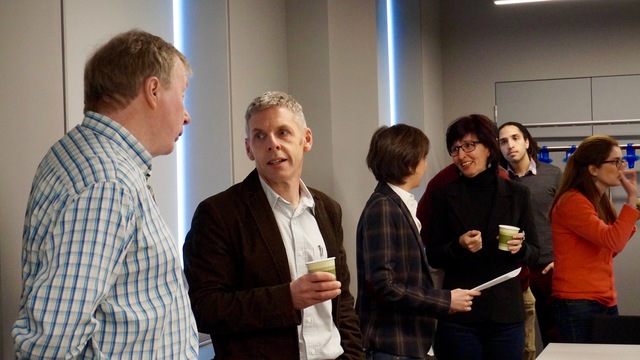
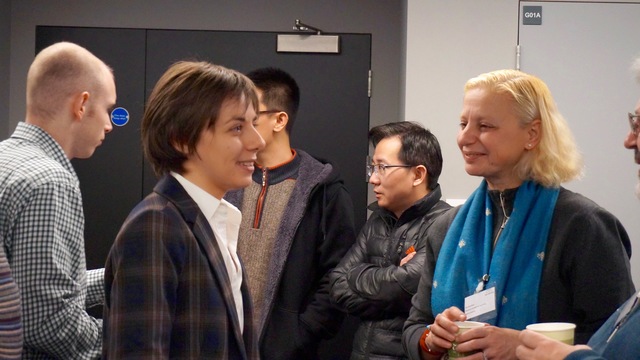
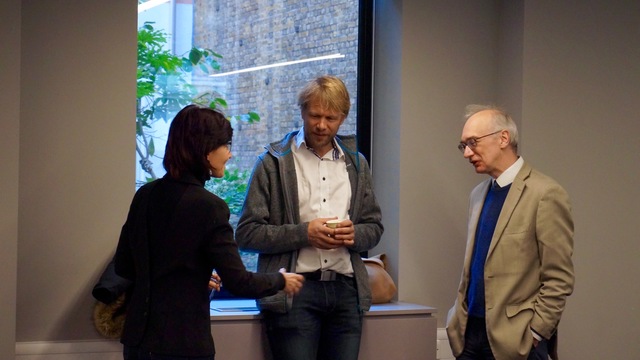
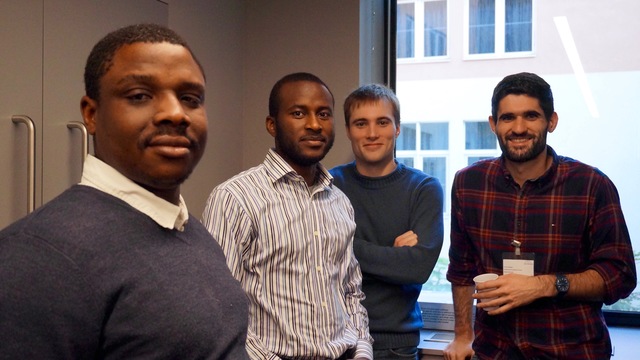
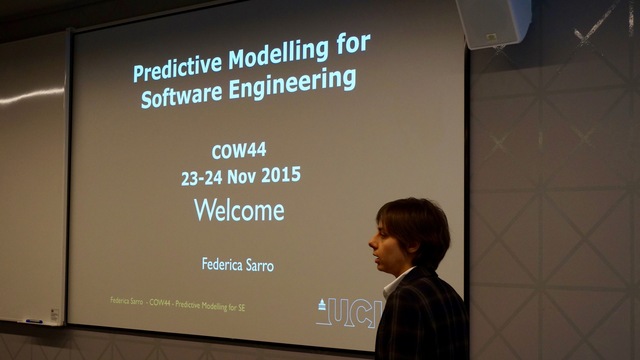
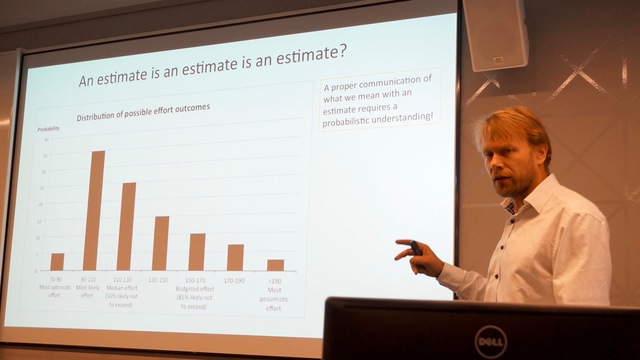
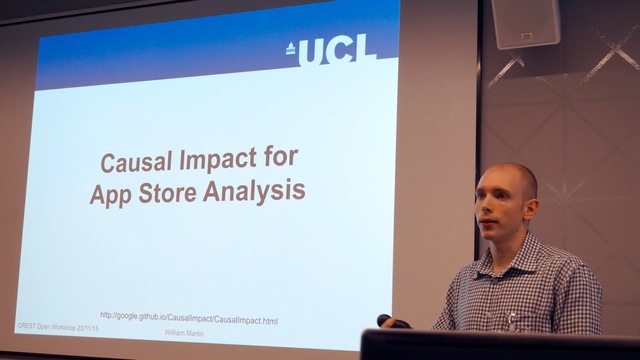
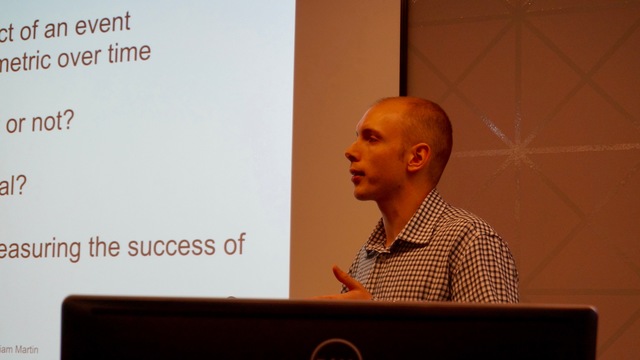
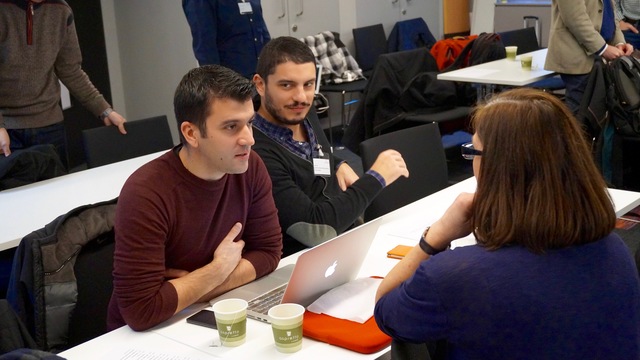
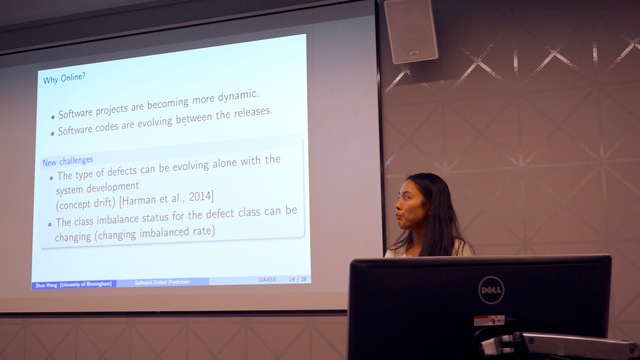
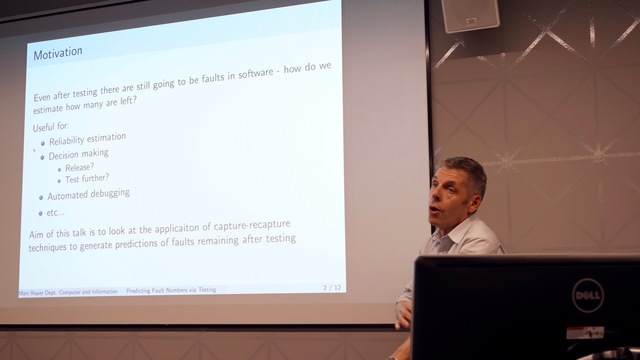
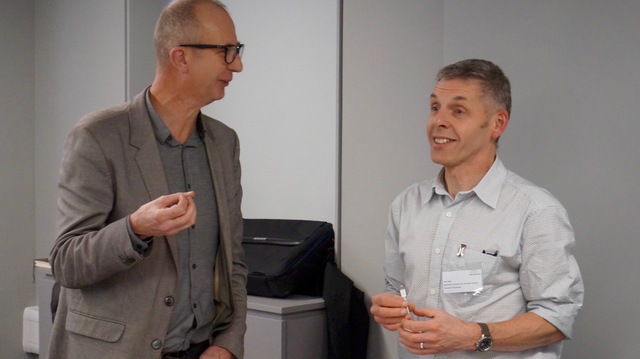
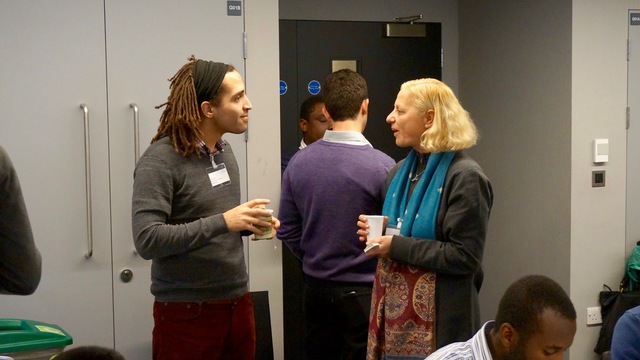
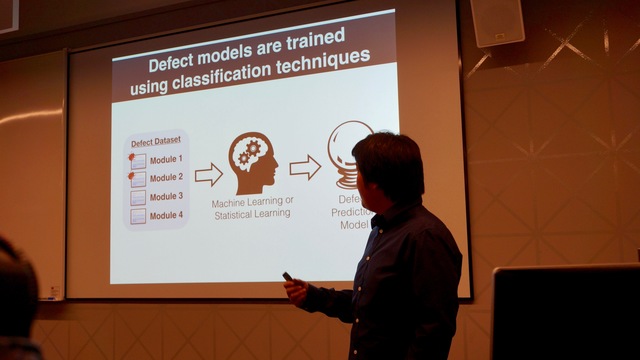
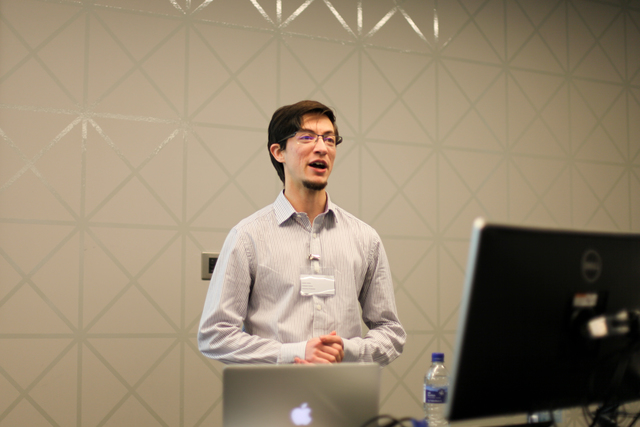
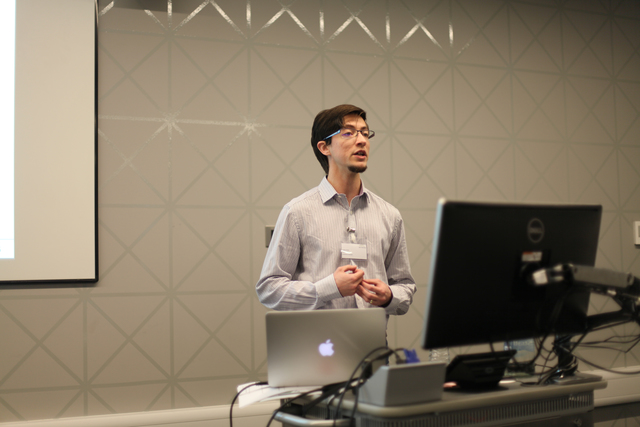
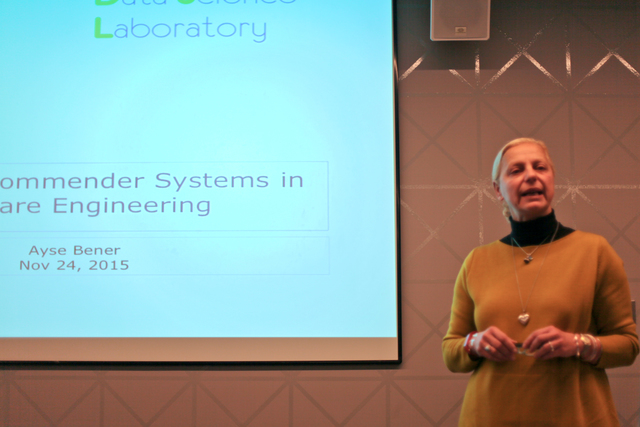
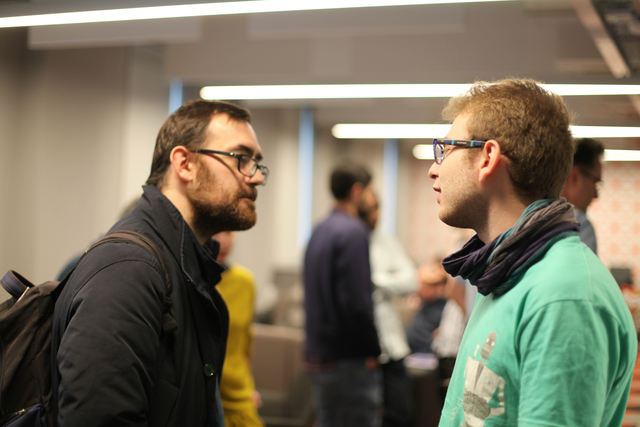
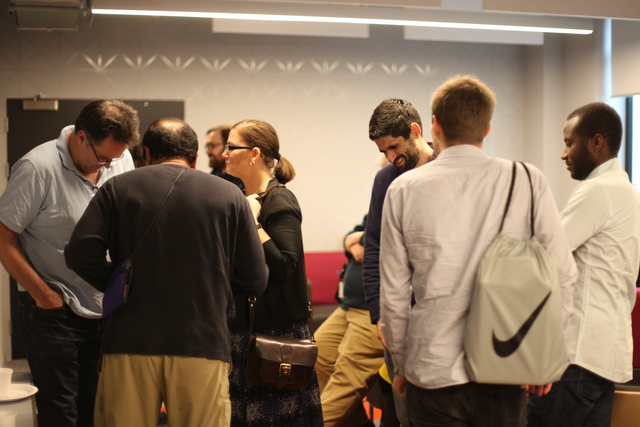
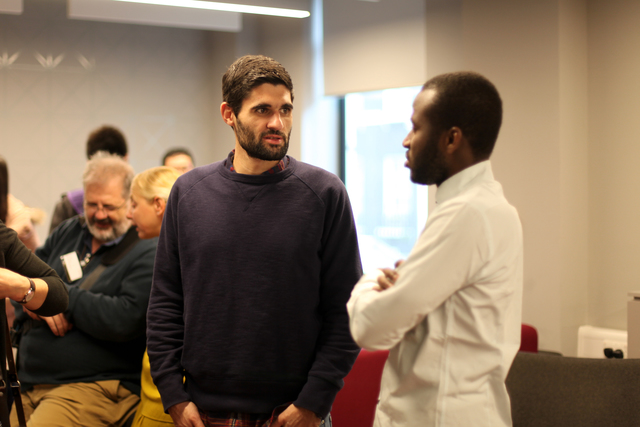
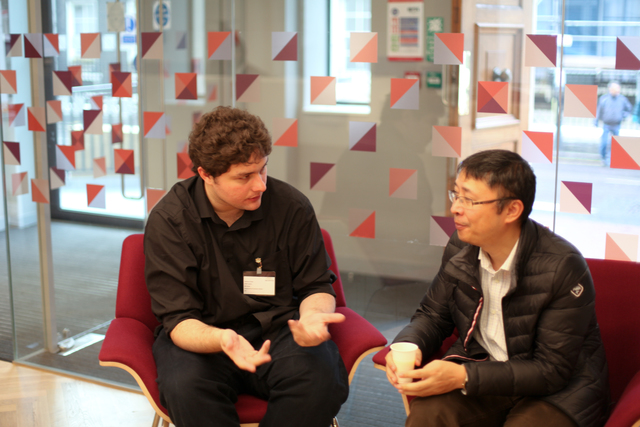
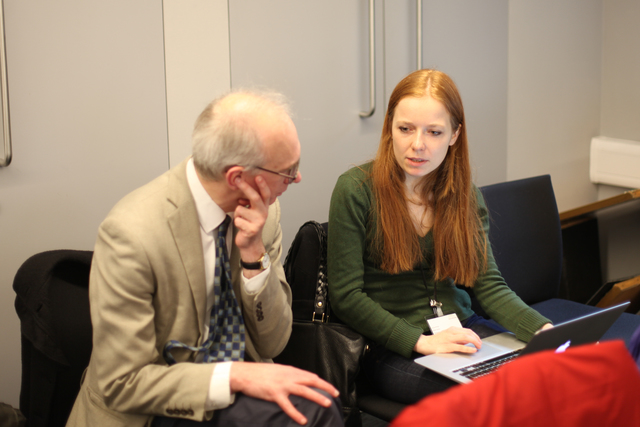
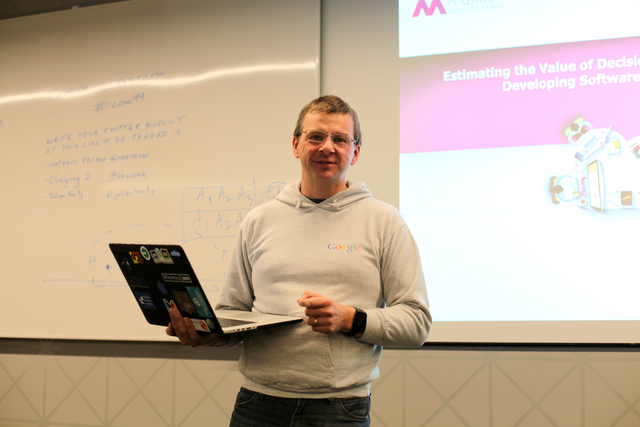
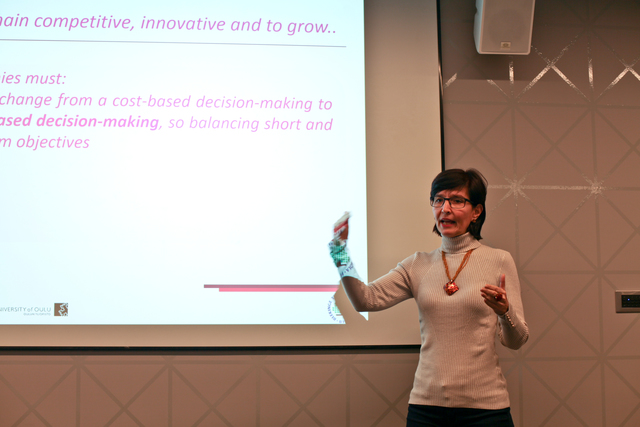
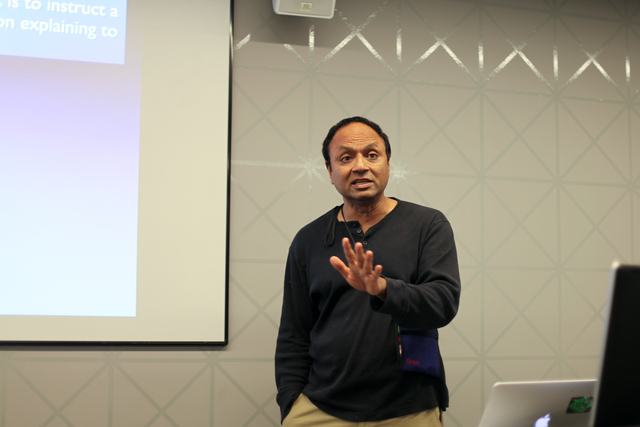
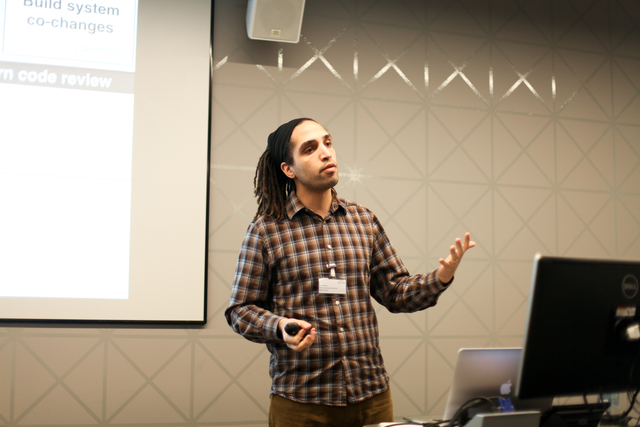
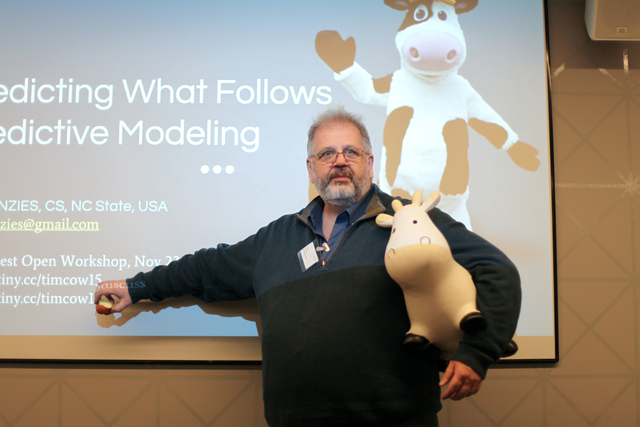
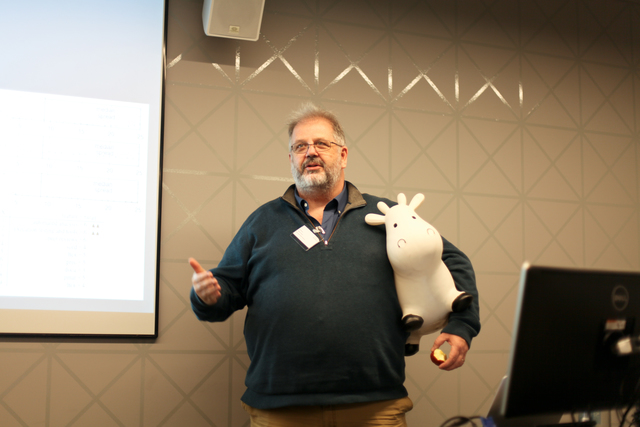
This workshop is supported by the following sponsors:
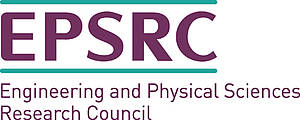


Registered Attendees:
1. Federica Sarro, CREST Centre, SSE Group, Department of Computer Science, UCL, UK
2. Ayse Basar Bener, Mechanical and Industrial Engineering, Ryerson University, Toronto, Canada
3. Magne Jørgensen, Simula Research Laboratory, Norway
4. Martin Shepperd, Computer Science, Brunel University, London UK
5. Shane McIntosh, Electrical and Computer Engineering, McGill University, Montreal, Canada
6. Premkumar Devanbu, Computer Science, University of California, USA
7. Tim Menzies, Computer Science, NCSU, North Carolina, USA
8. Matheus Paixao, CREST Centre, SSE Group, Department of Computer Science, UCL, UK
9. Afnan A. Al-Subaihin, CREST Centre, SSE Group, Department of Computer Science, UCL, UK
10. Justyna Petke, CREST Centre, SSE Group, Department of Computer Science, UCL, UK
11. Nicolas Gold , CREST Centre, SSE Group, Department of Computer Science, UCL, UK
12. William Martin, CREST Centre, SSE Group, Department of Computer Science, UCL, UK
13. Siti Faizah Omar, CREST Centre, SSE Group, Department of Computer Science, UCL, UK
14. Youcong Ni, School of Software, Fujian Normal Univeristy, China
15. Hector D Menendez, CREST Centre, SSE Group, Department of Computer Science, UCL, UK
16. Fan Wu, CREST Centre, SSE Group, Department of Computer Science, UCL, UK
17. Jimenez Matthieu, SnT, Luxembourg University, Luxembourg
18. Chakkrit Tantithamthavorn, SAIL, School of Computing, Queen's University, Canada
19. Zaheed Mahmood, School of Technology Research Institute, University of Hertfordshire, UK
20. Sara Hassan, Computer Science, Univeristy of Birmingham, UK
21. Marc Roper, Department Computer and Information Sciences University of Strathclyde, Glasgow, UK
22. Michele Lanza, REVEAL, Faculty of Informatics, University of Lugano, Switzerland
23. Antonio Filieri, Department of Computing, Imperial College London, UK
24. Jean Petric, Computer Science, University of Hertfordshire, UK
25. Simos Gerasimou, Department of Computer Science, University of York, UK
26. Nada Veerapen, Computing Science and Mathematics, CHORDS, University of Stirling, UK
27. Shuo Wang, School of Computing Science, University of Birmingham, UK
28. Jens Krinke, CREST Centre, SSE Group, Department of Computer Science, UCL, UK
29. DongGyun Han, CREST Centre, SSE Group, Department of Computer Science, UCL, UK
30. Giuseppe Destefanis, Department of Computer Science, Brunel University, London, UK
31. Tracy Hall, Department of Computer Science, Brunel University, London, UK
32. Derek M Jones, Knowledge Software, UK
33. Thomas Shippey, Department of Computer Science, Brunel University, London, UK
34. Marco Ortu, Department of Electrical and Electronic Engineering, University of Cagliari, Italy
35. Steve Counsell, Department of Computer Science, Brunel University, London, UK
36. David Bowes, School of Computer Science, Univeristy of Hertfordshire, UK
37. Carlos Gavidia, CREST Centre, SSE Group, Department of Computer Science, UCL, UK
38. Chaiyong Ragkhitwetsagul, CREST Centre, SSE Group, Department of Computer Science, UCL, UK
39. Leandro Minku, Computer Science, University of Leicester, UK
40. Alessio Petrozziello, School of Computing, University of Portsmouth, UK
41. María-Elena Gomez-Martinez, SSE, University of East London, UK
42. Edward Apeh, Cyber Security Unit, Bournemouth University, UK
43. Sobhan Yassipour Tehrani, Informatics, Kings College London, UK
44. Qiuchi Li, Faculty of Mathematics, Computing and Technology, The Open University, UK
45. Gaofeng Gao, School of Architecture, Computing and Engineering, University of East London, UK
46. Jing-Hao Xue, Department of Statistical Science, UCL, UK
47. Yijun Yu, Department of Computing and Communications, The Open University, UK
48. Gul kalikli, Department of Computing and Communications, The Open University, UK
49. Kendra Cooper, Science and Technology, Bournemouth University, UK and University of Texas, Dallas, USA
50. Julian Harty, The Open University, UK and Commercetest Ltd
51. Bill Langdon, CREST Centre, SSE Group, Department of Computer Science, UCL, UK
52. Emilia Mendes, Computer Science Department, Blekinge Institute of Technology, Karlskrona, Sweden, & Department of Information Processing Science, University of Oulu, Oulu, Finland
53. Matteo Orrù, DIEE, University of Cagliari, Italy
